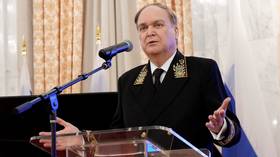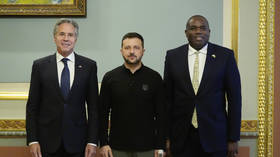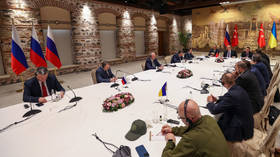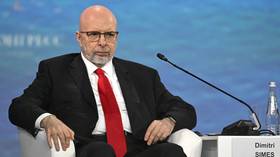US threatens to sanction countries that host Russian banks
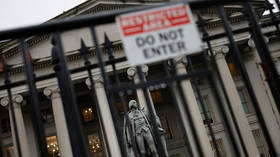
Nations which maintain economic ties with Russia risk secondary sanctions if they allow Russian banks to open local branches to facilitate bilateral trade, the US Treasury’s Office of Foreign Assets Control (OFAC) stated on Friday.
The measures are aimed at closing workarounds that Moscow is said to be using to circumvent the existing sanctions. The Treasury Department has claimed that the Russian authorities are utilizing vague schemes to pay for dual-use goods that are allegedly imported from the third states.
“Treasury is aware of Russian efforts to facilitate sanctions evasion by opening new overseas branches and subsidiaries of Russian financial institutions,” the statement reads.
The department urged foreign regulators and financial institutions to be “cautious about any dealings with overseas branches or subsidiaries” of Russian banks, including efforts to set up new branches or subsidiaries, having warned that it has a range of tools to target “the establishment of new evasion channels.” The measure is aimed at Russian banks that are not sanctioned yet.
Washington has introduced several rounds of sanctions which target the interaction of foreign banks with Russian companies and financial organizations since the escalation of the Ukrainian conflict in February 2022.
Last December, US President Joe Biden ordered the introduction of so-called secondary sanctions against financial institutions that allegedly support Russia’s defense sector.
At the time, the US administration blacklisted over 4,500 Russian entities in an effort to force foreign lenders not to work with them.
In June, the White House expanded the scope of the crackdown on foreign banks that do business in Russia, targeting any such institution that works with any sanctioned entity in the country with the updated policy. At the same time, the US imposed sanctions on the subsidiaries of VTB, Sberbank, Promsvyazbank and Vnesheconombank in China, Kyrgyzstan and India.
The US and its allies have introduced a record number of restrictions against Moscow since 2014, when Crimea rejoined Russia and a conflict between Ukraine and the Donbass republics broke out as the result of a Western-backed coup in Kiev. Last week, Washington announced additional restrictions against 400 individuals and companies in Russia, Asia, Europe and the Middle East, accusing them of supporting Moscow’s military-industrial supply chains.
Commenting on the move, Russia’s Ambassador to the US Anatoly Antonov said that the sanctions are fruitless and continue to harm US domestic consumers, as well as America’s partners in third countries. Moscow has repeatedly called the curbs illegitimate, and responded with travel bans on Western officials and other moves.
